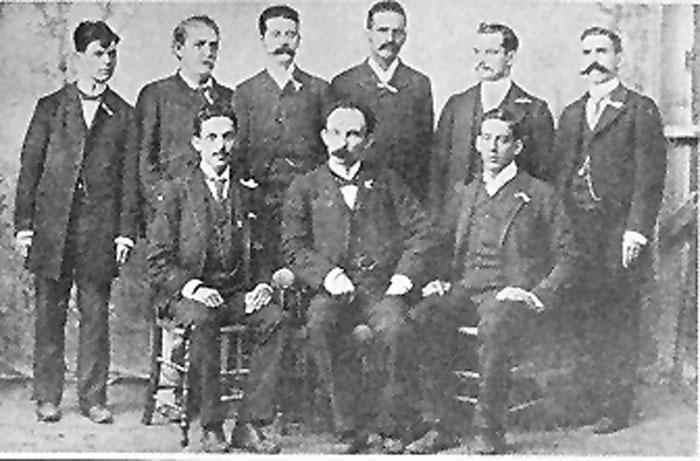
February 24, 1895 saw the outbreak of the Necessary War conceived by José Martí. For the first time the pro-independence forces were led by a superior organization: the Cuban Revolutionary Party, which brought together new batches of patriots and veteran leaders whose experience helped prevent many of the problems that put paid to two previous wars.
To that end, the Apostle proclaimed the Cuban Revolutionary Party (PRC) on April 10, 1892 "to achieve absolute independence for the island of Cuba and to aid and encourage that of Puerto Rico through the combined efforts of all men of good will". The date was chosen as a symbol of continuity, since the first Constitution of the Republic of Cuba in Arms had been approved on that day 23 years before.
The PRC laid down provisions for the creation of "a new and sincerely democratic nation" with methods that banished any authoritarian political and economic practice.
After long years of exile in and pilgrimage through the U.S. and Latin America, Marti was aware of the pernicious actions used by ambitions politicians who exploited false populism and demagogy to lead the people, so his Party would abide by the principles of independence with truly democratic methods that would unite all generations of patriots.
Since the statutes of the PRC were secret to protect the clandestine work that would lead the independence movement in and outside Cuba, the first step would entail a great deal of preparation to wage a war under the nose of the Spanish empire and in defiance of U.S. imperialist interests at odds with Cuba’s yearning for freedom.
Along with the PRC came Patria, a newspaper bound to play a key role in the mobilization and unity of the patriots.
At the end of the Necessary War and with the American intervention, Tomás Estrada Palma, who replaced Martí and betrayed his ideals, helped disband all the representative organs of the pro-independence fighters, mainly the Liberation Army and the Cuban Revolutionary Party, as an indispensable premise to establish on the Island a colony disguised as an independent republic.
However, his plans came up against opposition from prominent Cubans and PRC’s grassroots cells in exile. Martí’s friend and close collaborator Juan Gualberto Gómez, stressed that "in the future of Cuba, where freedom, progress and the principles of true democracy enshrined in our program must be assured, the Cuban Revolutionary Party remains the only one capable of achieving and sustaining them".
Marti's legacy transcended time and was ever-present for more than half a century of revolutionary wars waged by several generations of Cubans until the ultimate victory of January 1st, 1959.
Sidebar

 Agencia Cubana de Noticias
Líder en información nacional
Agencia Cubana de Noticias
Líder en información nacional








Nos reservamos el derecho de no publicar los comentario que incumplan con las normas de este sitio